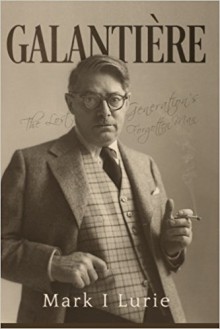
Earlier this year I read Sylvia Beach’s memoir of the 1920s and 1930s in Paris, [b:Shakespeare and Company|428456|Shakespeare and Company|Sylvia Beach|http://d.gr-assets.com/books/1328821013s/428456.jpg|417466], named for the English language bookshop and lending library she founded in 1922. I found it an engaging work overall, although my lack of familiarity with less well-known English and American writers of the period and with French literary figures of the early 20th century made some parts of the work significantly less interesting than others. In her memoir, Sylvia Beach comes across as a thoroughly nice woman and I wanted to know more about her.
After reading Beach’s account of her life, it was very interesting to read what others had to say about her in this very detailed biography. It’s not surprising that the author concentrates on Beach’s connection to James Joyce, as this relationship was central to Joyce’s career. Beach went from being a fan of Joyce’s writing to becoming his friend and then to being the first publisher of [b:Ulysses|338798|Ulysses|James Joyce|http://d.gr-assets.com/books/1346161221s/338798.jpg|2368224] in book form. She also acted as Joyce’s banker, secretary, publicity agent, manager, real estate agent and nurse. While the improvident and self-centered Joyce was aware of how much he depended on her, he treated her poorly and his selfishness ultimately led to a breach in the relationship. In her memoir Beach merely hints at how exasperated she was by Joyce’s behaviour. The extent to which Joyce took advantage of Beach’s good nature and the growing distress his selfishness caused her is expanded upon in this work, in which Fitch uses sources including parts of her memoir which Beach suppressed.
The work deals not only with the relationship between Beach and Joyce. It goes into Beach’s family background, her relationship with her long-term partner Adrienne Monnier and her interactions with writers including Ernest Hemingway, F Scott Fitgerald, T S Eliot, Ezra Pound, as well as a host of other English American and French writers of the period. The work is structured chronologically, with each chapter covering a period of one or two years until 1944 and concluding with a chapter covering the rest of Beach’s life. To some extent, this means that the work suffers from the same problem as Beach’s memoir. The casual reader who is not totally familiar with the writers and the publications of the period is likely to find some parts of the work much less interesting than others.
That said, this is a great book to read for anyone interested in expatriate writers in Paris in the 1920s and 1930s. Fitch’s prose is clear and accessible. She engages in relatively little speculation and each chapter is extensively annotated. The work is a great evocation of Paris in a time of immense literary creativity and innovation. The work confirms my impression of Sylvia Beach as an intelligent, resourceful, persistent warm and generous woman. She is fascinating to read about and would have been wonderful to know.


 Log in with Facebook
Log in with Facebook 









